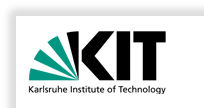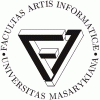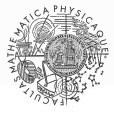Přemysl Brada (University of West Bohemia in Pilsen, Czech Republic)
Ivana Černá (Masaryk University, Czech Republic)
Antinisca Di Marco (Università dell'Aquila, Italy)
Petr Hnetynka (Charles University in Prague, Czech Republic)
Samuel Kounev (Karlsruhe Institute of Technology, Germany)
Ralf Küsters (Universität Trier, Germany)
Markus Lumpe (Swinburne University of Technology, Australia)
Daniel Menasche (UFRJ, Brazil)
Raffaela Mirandola (Politecnico di Milano, Italy)
Dorina Petriu (Carleton Univesity, USA)
Nadia Polikarpova (ETH Zürich, Switzerland)
Ralf Reussner (Karlsruhe Institute of Technology, Germany)
Cristina Seceleanu (Mälardalen University, Sweden)
Kishor Trivedi (Duke University, USA)
Catia Trubiani (Università dell'Aquila, Italy)
Steffen Zschaler (King's College London, UK)




